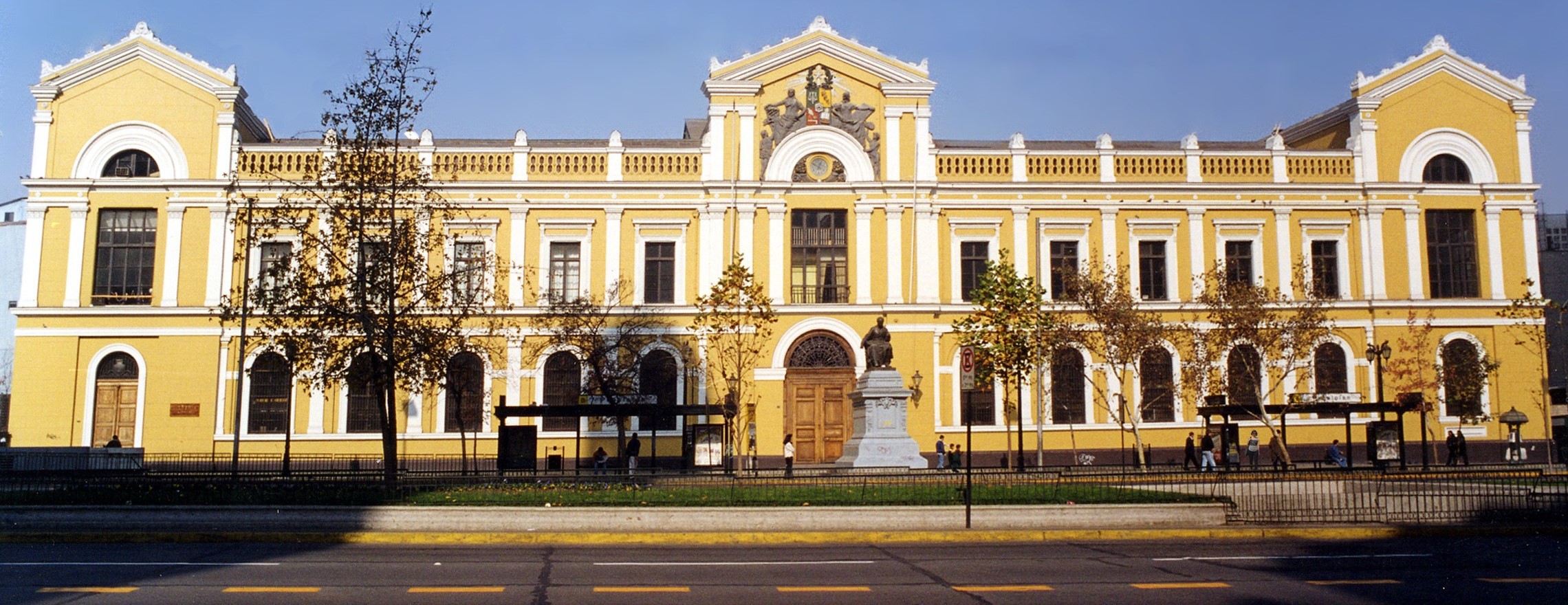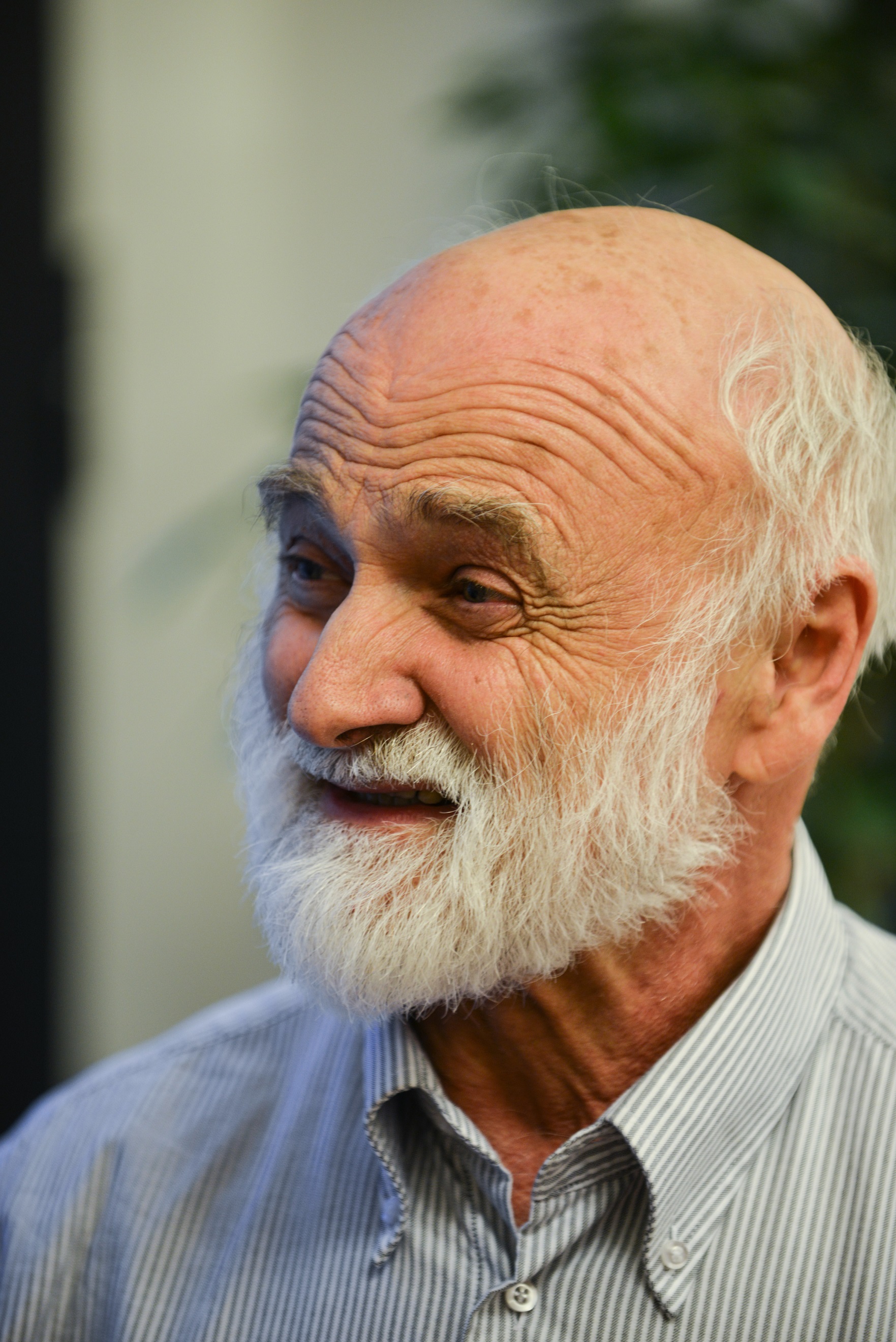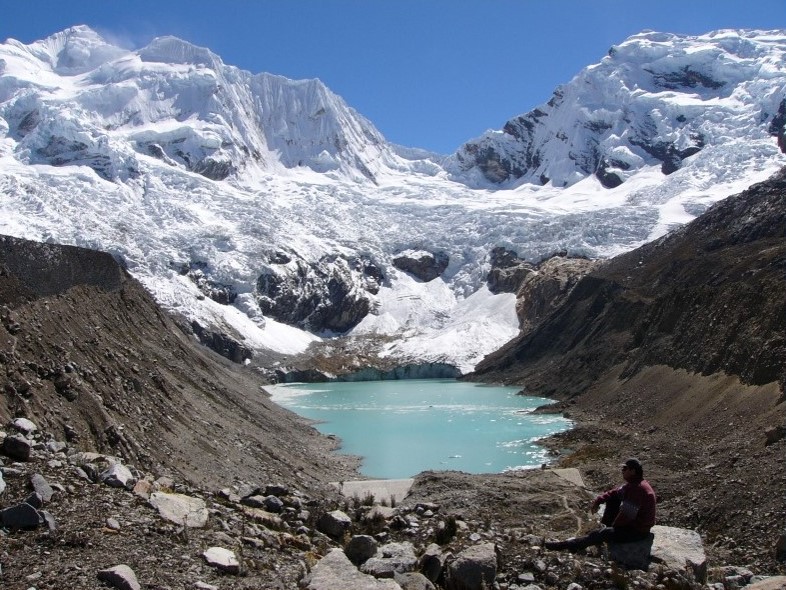Following broader interest from a number of faculties, late last year Universidad de Chile, the region's leading public university, became a key partner of Charles University. Both schools are dedicated to deepening further cooperation in the coming years. What has already been achieved and what is in the pipeline? In addition to a number of projects underway, Ibero-American Week is just around the corner, taking place from 9 to 13 May.

A view of the hill with the statue of the Virgin Mary in Santiago de Chile over the university building with the national flag of Chile (2019).
Since 2015, Charles University has been dedicated to developing relationships with a close-knit group of universities in the role of key strategic partners. CU relies on these relationships not only to promote educational and scientific cooperation, but also to fulfil the so-called third role of the university. The Centre for Strategic Partnerships, which was established in early 2018, is responsible for cooperation with these institutions.
Latin America tends to be unfairly overlooked as a destination not only by students but also by academics. This is due to a number of factors. News reaching Europe is often full of rather negative stories, rumours and stereotypes of armed robberies, local conflicts, rigged elections and drug cartels. Only those who pay close attention to this continent see what is in reality a magical world full of beauty. For them, Latin America is not a single entity, but rather a mosaic that can sometimes be difficult to decipher. Latin America is an obsession that can capture the imagination and heart of almost anyone. Chile is famous not only for its win but for the work of numerous Chilean writers, accessible to Czech readers thanks to translations into English.
What remarkable things does Latin America have to offer?
Few people in Czechia know Latin America as well as Professor Josef Opatrný from the Centre for Ibero-American Studies at the Faculty of Arts of Charles University. How would he summarise the opportunities that Latin America and Chile in particular offer for cooperation with the Czech Republic and Charles University?
“Historically, Latin America has been considered an economically, culturally and politically important part of the world. In the economic sphere, it is a rich source of raw materials and food, magical realism has been a revelation to readers throughout the Atlantic world, and in the political sphere, Latin America has offered figures who have influenced and are influencing world events. In comparative rankings of the world's universities, Latin American colleges are rising, with schools from Brazil in particular, but also universities from Mexico and Chile. They are also steadily expanding their international contacts, and universities from North America and Europe are signing cooperation agreements with schools in São Paulo, Monterey and Santiago de Chile, creating large communities of international students,” Opatrný explains.
“Chile is one of the countries in Latin America whose education system has always been considered to be of high quality and has achieved excellent results compared to other Latin American countries. Of the 10 highest-ranked universities in Latin America, two Chilean universities have always been in the top five (Universidad de Chile and Universidad Pontífica). Chile has been equally positive in the economic field, with the highest GDP per capita in the region. One of Chile's few problems was the great inequality in the social sphere. This was the subject of increasing criticism from both high school and university students, who categorically called for educational reform as part of the necessary transformation of Chilean society as a whole,” Professor Opatrný says.
Fund committee backs cooperation projects
This year, the Strategic Partnerships Fund committee supported two cooperation projects with the Universidad de Chile, an institution with a tradition of some 180 years. They are led by academics from the Faculty of Science of Charles University, who have a rich history of cooperation with Latin America.
One of them is the project of Professor Vít Vilímek and his team from the Department of Physical Geography and Geoecology. Professor Vilímek has been involved in research in Latin America for some time, although initially his focus was mainly on Peru. “In Peru, we initially focused on research on tectonic movements, by installing very precise monitoring on an active fault in the Cordillera Blanca mountain range and, following this, on the fall of ice and rocks from the northern peak of Huascarán, which is known to the Czech Republic as a tragic event, as the entire Czechoslovak mountaineering expedition died here in 1970. Our research has revealed that in prehistory there must have been much more significant eruptions than the one that followed the 1970 earthquake,” Vilímek says.
Expanded research
Gradually, however, the team’s interest began to focus on Chile: “Just as our geomorphology team expanded with the involvement of Ph.D. students, we also expanded our research topics and this now allows us to carry out research in regions that are not easily accessible, such as the Chilean Andes. Here we have started to collaborate with the University of Pavia (Italy), which already has good contacts at the University of Santiago de Chile, and for this year we are planning an introductory lecture block on our research in Santiago and a first field trip. At the same time, we are happy to welcome Chilean teachers and students in Prague.”
The second supported project is that of Petr Sklenář from the Department of Botany. Associate Professor Sklenář has long been involved in research in Latin America, specifically in the study of the evolution and ecology of vascular plants of the South American Andes. “The mountainous regions of Chile remain the only region where research and sampling has not yet been carried out. Because the southern temperate Andes represent the oldest mountainous region of the continent, the species there represent a pivotal link for understanding the evolution and ecology of Andean plant groups. The conclusion of a key partnership between Charles University and Universidad de Chile thus represents a unique opportunity to initiate concrete cooperation in the field of research and education,” says Sklenář from the Faculty of Science of Charles University.

The central historic building of the Universidad de Chile, one of the best universities in Latin America (Creative Commons, 2003).
Just around the corner: Ibero-American Week
The expansion of cooperation with Chile is related to the increased interest in Latin America within the Czech Republic. Ibero-American Week will take place from 9 to 13 May, with the main event being an all-day international conference at the Czernin Palace (home to Czechia’s Ministry of Foreign Affairs) on 10 May. The foreign ministers of several Latin American countries and a number of prominent public figures have already confirmed their participation in the conference. The aim of the event will be to raise the profile of the Czech Republic's diverse relations with the Latin American countries of Spain, Portugal and Andorra, and to provide an opportunity for further meetings and development.
As part of Ibero-American Week, two major events will take place at Charles University. The first will be the 27th Ibero-American Prize. This prize is open to students of Czech universities and is awarded annually for the best essay on any topic in the field of art, science, culture, economics, history, literature, politics or sociology of an Ibero-American country (i.e. Latin American countries, Spain, Portugal and Andorra).
The second event will also be interesting, which will take place on 9 May 2022 at 4:00 pm at the Centre for Ibero-American Studies of the Faculty of Arts of the University of Ljubljana. It will be a conference on the Bicentennial of the independence processes in Brazil, Mexico and Peru. Professor Juan Carlos Estenssoro from the Nouvelle Sorbonne in Paris will take part in the event on the behalf of Peru.




















